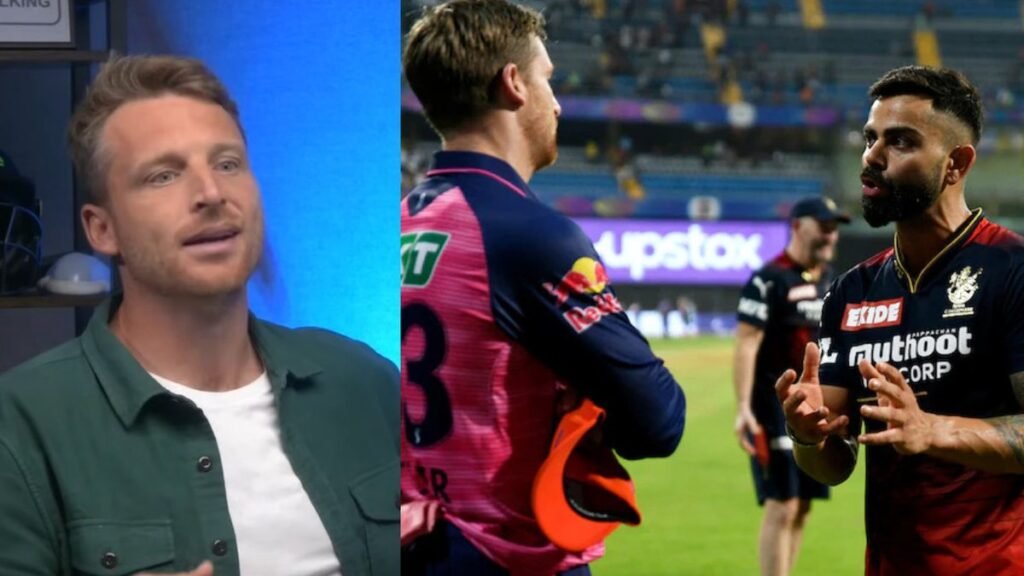
In a moment that has resonated across the cricketing world, Jos Buttler revealed a rare and deeply human side of modern batting icon Virat Kohli during a candid conversation. Speaking on a cricket podcast, Buttler recounted a chat where Kohli admitted that, at times, even he questions his own abilities. The former India captain, who is often seen as the epitome of confidence and aggression, laid bare the insecurities that occasionally creep into his game.
“He then started talking about the insecurities he sometimes has about his own game. He said, ‘Sometimes I pick up my bat and I feel like I don’t know how to play,’” Buttler shared, reflecting on the vulnerability shown by one of cricket’s most consistent and celebrated performers. This rare moment of honesty from Kohli has sparked a wave of admiration from fans and players alike, not for his achievements this time, but for his willingness to open up about something so universally human: self-doubt.
Virat Kohli’s career, by most measures, is one that defies normal standards. With over 25,000 international runs, centuries across all formats, and accolades as both captain and batter, he has long been regarded as one of the fiercest competitors on the cricket field. Yet, these revelations remind us that even the greats aren’t immune to moments of doubt, especially in a game as mentally demanding as cricket.
Kohli has been through various phases in his career—blistering form, dry spells, and everything in between. His lean period from 2019 to 2022, where he went without an international century for nearly three years, was one of the most discussed slumps in recent memory. During that time, he stepped down from captaincy across formats and even took a mental health break. For someone who carried the expectations of over a billion fans for more than a decade, the weight of performance and personal introspection would inevitably intersect.
Buttler’s anecdote sheds light on a broader truth: that self-doubt, far from being a weakness, is a reflection of the immense pressure elite athletes operate under. Kohli’s admission that sometimes he doesn’t feel in control of his own craft mirrors what many performers, artists, and sportspeople go through in private—even as they put on brave faces in public.
More importantly, it shows that vulnerability and greatness are not mutually exclusive. In fact, acknowledging fear or uncertainty can often be a source of renewed strength. Kohli has repeatedly shown the ability to bounce back—whether it was his remarkable return to form in 2023, or his key contributions in World Cup campaigns despite external noise.
What makes this revelation particularly impactful is the message it sends to young cricketers and fans: it’s okay to have off days. It’s okay to feel lost, even when you’re at the top. And most of all, it’s okay to talk about it.
In today’s world of curated social media perfection and idolized sports personalities, Kohli’s frankness, relayed by Buttler, serves as a gentle but powerful reminder that mental health matters. Self-doubt does not diminish greatness—it deepens the story behind it.
As the cricketing world continues to applaud Kohli’s for his milestones, this moment of emotional honesty might just be one of his most inspiring contributions yet.
For more news updates, follow 12B Sports India Facebook .

